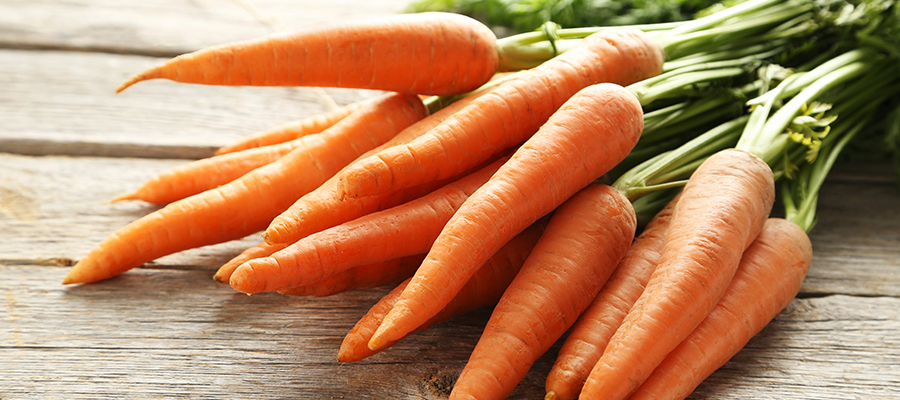
Your eyes are not only windows to your soul but also to your overall health. The food choices you make can have a significant impact on your eye health and vision. Incorporating the right nutrients into your diet can help maintain good eyesight and reduce the risk of age-related eye conditions. In this blog, we'll explore the essential foods that promote better vision and overall eye health.
We've all heard the old adage that carrots are good for your eyes, and there's truth to that. Carrots are rich in beta-carotene, a type of vitamin A that plays a crucial role in maintaining healthy vision. Vitamin A helps the eyes convert light into a signal that can be transmitted to the brain, allowing you to see in low-light conditions. Other foods high in beta-carotene include sweet potatoes, butternut squash, and pumpkin.
Spinach, kale, and other leafy greens are packed with antioxidants like lutein and zeaxanthin, which help protect the eyes from harmful high-energy light waves like ultraviolet rays. These antioxidants can reduce the risk of cataracts and age-related macular degeneration (AMD). Aim to incorporate leafy greens into your salads, smoothies, or as a side dish.
Fish like salmon, mackerel, and trout are excellent sources of omega-3 fatty acids, which can contribute to the overall health of your eyes. Omega-3s help maintain the structural integrity of cell membranes in the eye and may reduce the risk of dry eye syndrome and AMD. If you're not a fan of fish, consider incorporating flaxseeds, chia seeds, or walnuts into your diet as plant-based sources of omega-3s.
Citrus fruits like oranges, grapefruits, and lemons are high in vitamin C, which has antioxidant properties that can help protect the eyes from oxidative damage. Vitamin C is essential for maintaining the health of blood vessels in the eyes and reducing the risk of cataracts. Plus, it boosts the immune system, which indirectly supports overall eye health.
Eggs are a versatile food that contains essential nutrients for eye health, including lutein and zeaxanthin. Additionally, eggs provide zinc, a mineral that plays a role in transporting vitamin A to the retina, where it's needed for vision. So, don't skip the eggs at breakfast!
Almonds, peanuts, and sunflower seeds are rich in vitamin E, another antioxidant that can help protect your eyes from damage caused by free radicals. Vitamin E may also reduce the risk of cataracts and AMD. These snacks are not only delicious but also nutritious for your eyes.
Bell peppers, especially the brightly coloured ones like red, orange, and yellow, are loaded with vitamin C and beta-carotene. These nutrients help maintain healthy blood vessels in the eyes and reduce the risk of cataracts and AMD. Bell peppers make a crunchy addition to salads and stir-fries.
Lean meats like chicken and turkey provide the body with zinc, which is essential for maintaining the health of the retina. Zinc deficiency can lead to poor night vision and may contribute to AMD. Incorporate lean meats into your diet for a protein boost that benefits your eyes.
Whole grains like brown rice, quinoa, and oats provide a steady supply of energy and nutrients, including vitamin E, zinc, and niacin, which support overall eye health. These grains are a wholesome addition to your meals and can help regulate blood sugar levels, which is beneficial for diabetic eye health.
Incorporating a variety of these eye-friendly foods into your diet can help maintain better vision and reduce the risk of eye conditions as you age. However, remember that no single food can provide all the nutrients your eyes need. A balanced diet that includes a wide range of nutrients, along with regular eye exams by your optometrist, is the key to preserving your eye health for years to come. So, make wise food choices and see the world more clearly!
Fill in the form below and we will get back to you as soon as we can.
Address: Shop 29 Crowthorne Shopping Centre, Cnr Main & Arthur Roads, Kyalami, Midrand